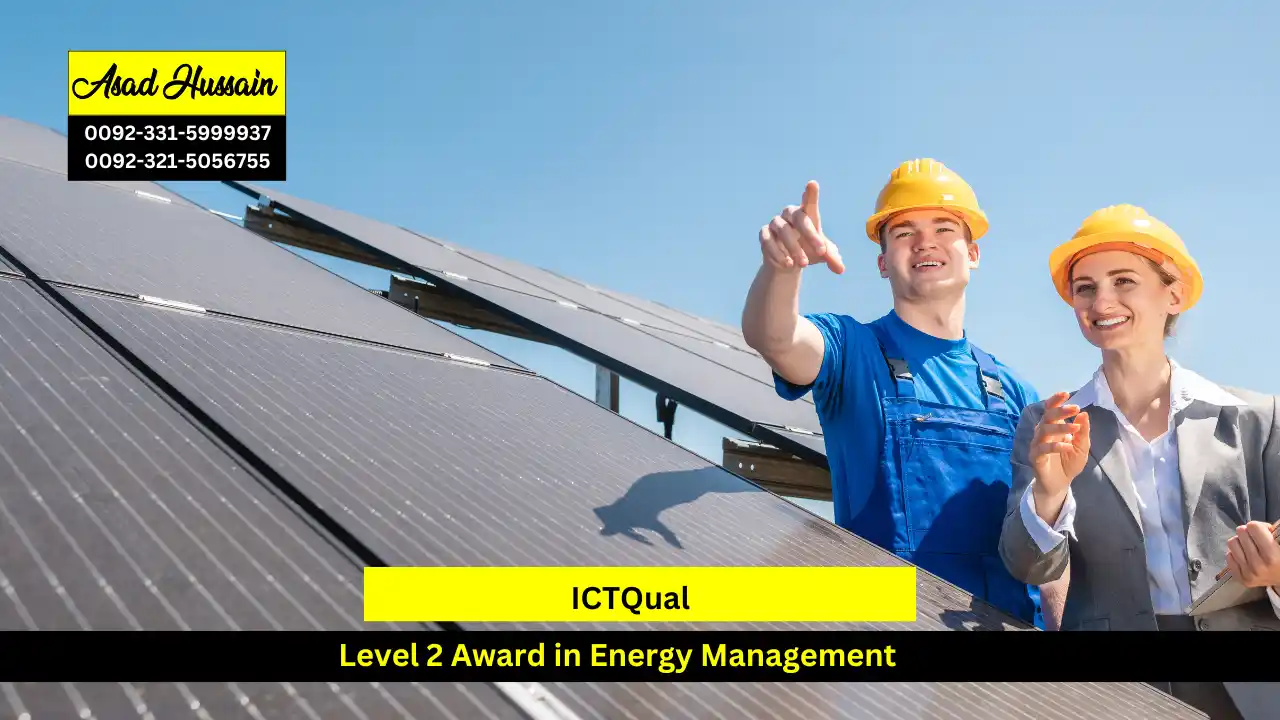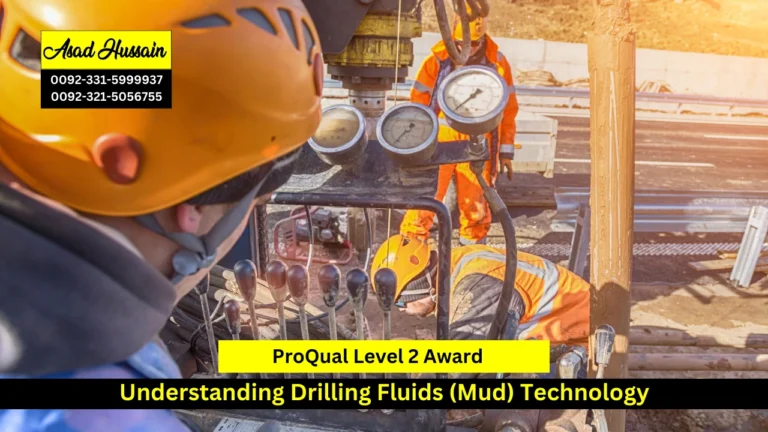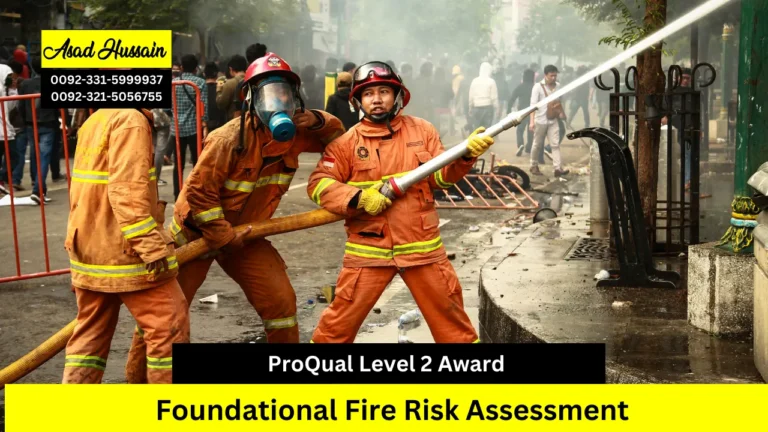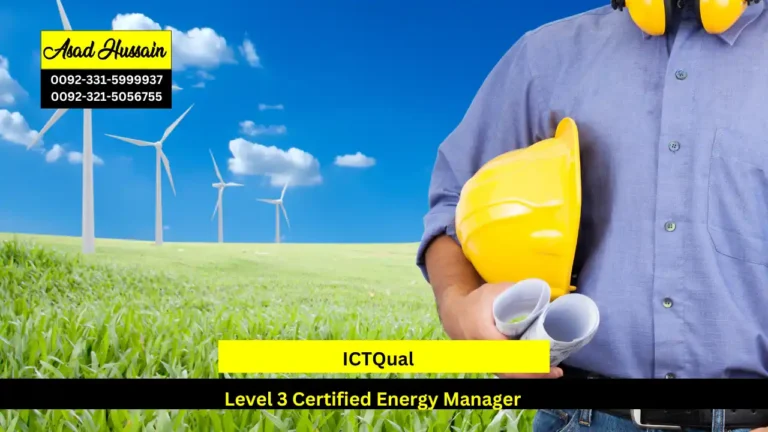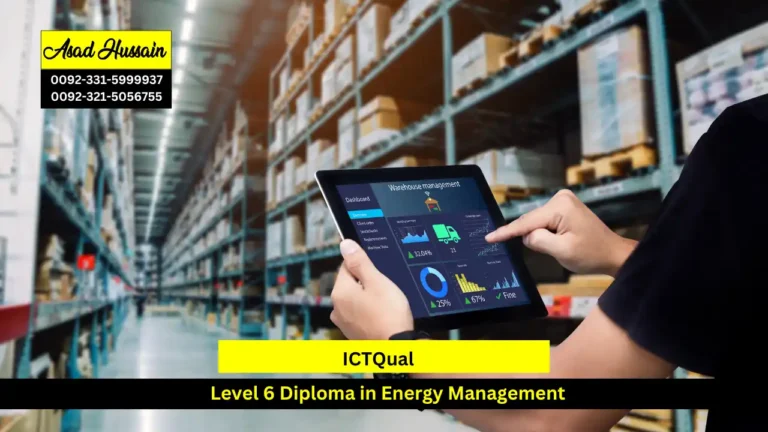In today’s world, the emphasis on sustainability and energy efficiency has never been greater. Organizations and individuals alike are striving to reduce their environmental footprint and operate in more eco-friendly ways. If you’re looking to gain foundational knowledge in energy management and make a tangible impact on how energy is utilized, the Level 2 Award in Energy Management is a valuable starting point. This blog post will delve into the key aspects of this qualification, its benefits, and why it’s an excellent choice for those beginning their journey in energy management.
The Level 2 Award in Energy Management is an introductory qualification designed for individuals who are new to the field of energy management or looking to develop their basic understanding of energy efficiency. This course provides essential insights into energy management principles, practices, and the significance of energy conservation in various settings.
The Level 2 Award in Energy Management is an excellent starting point for anyone interested in the field of energy management and sustainability. It provides essential knowledge and practical skills that can be applied in various contexts, from residential settings to large organizations. By pursuing this qualification, you position yourself as a key player in the drive towards more efficient and environmentally responsible energy use. Whether you’re looking to enhance your career prospects or contribute to global sustainability efforts, this award offers valuable insights and a solid foundation for future growth in the energy management sector.
Program Highlights
Mandatory Units
- Fundamentals of energy management
- Energy consumption awareness in the workplace
- Reducing energy consumption in the workplace
- Importance of collecting and managing energy data
- Energy consumption in buildings and processes
- How energy use equipment and systems operate
- Importance of energy audits and assessments in the workplace
- Legislative and regulatory requirements covering energy
- Importance of an organisation’s energy strategy, planning and policy
- Role of design, installation and commissioning of energy use equipment and systems
- Use of operational and maintenance controls to operate the energy use equipment and systems efficiently
- Participants may be required to have a minimum educational qualification, such as a high school diploma or equivalent.
- Proficiency in the language of instruction (usually English) may be required to ensure participants can fully understand course materials and actively participate in discussions and assessments.
- Basic computer literacy, including the ability to use word processing software, email, and internet browsers, may be necessary for accessing course materials and completing online assessments, if applicable.
- Work experience is not mandatory, but it is preferred or recommended for participants to have relevant work experience in fields such as engineering, environmental science, facilities management, or energy-related industries.
Fundamentals of Energy Management
- Understand Basic Concepts: Define key terms and concepts related to energy management.
- Identify Energy Sources: Recognize different sources of energy and their characteristics.
- Grasp the Importance: Explain why energy management is crucial for both environmental sustainability and cost savings.
Energy Consumption Awareness in the Workplace
- Assess Current Usage: Identify and analyze patterns of energy consumption within the workplace.
- Evaluate Impacts: Understand the impact of energy consumption on operational costs and environmental footprint.
- Promote Awareness: Develop strategies to raise awareness about energy usage among employees.
Reducing Energy Consumption in the Workplace
- Implement Efficiency Measures: Apply practical methods to reduce energy consumption.
- Analyze Impact: Measure and evaluate the effectiveness of energy-saving initiatives.
- Propose Improvements: Recommend additional measures for further energy reduction.
Importance of Collecting and Managing Energy Data
- Understand Data Collection: Explain the significance of collecting accurate energy data.
- Manage Data Effectively: Develop skills to manage and utilize energy data for decision-making.
- Monitor Performance: Use data to track energy consumption and identify areas for improvement.
Energy Consumption in Buildings and Processes
- Analyze Building Usage: Evaluate energy consumption patterns in various building types.
- Assess Processes: Understand how energy is used in different processes and operations.
- Identify Optimization Opportunities: Recognize opportunities to improve energy efficiency in buildings and processes.
How Energy Use Equipment and Systems Operate
- Understand Equipment Function: Explain how various types of energy use equipment and systems function.
- Evaluate Efficiency: Assess the efficiency of different equipment and systems.
- Recognize Maintenance Needs: Identify common maintenance requirements to ensure optimal operation.
Importance of Energy Audits and Assessments in the Workplace
- Conduct Audits: Learn the process of performing energy audits and assessments.
- Analyze Findings: Interpret audit results to identify areas for improvement.
- Implement Recommendations: Apply audit recommendations to enhance energy efficiency.
Legislative and Regulatory Requirements Covering Energy
- Understand Legislation: Describe key legislative and regulatory requirements related to energy management.
- Ensure Compliance: Learn how to ensure organizational compliance with energy regulations.
- Apply Standards: Implement standards and practices that align with legal requirements.
Importance of an Organization’s Energy Strategy, Planning, and Policy
- Develop Strategy: Explain the importance of creating an energy strategy and policy for an organization.
- Implement Planning: Understand how to develop and implement energy plans that align with organizational goals.
- Monitor and Review: Assess the effectiveness of energy strategies and policies and make necessary adjustments.
Role of Design, Installation, and Commissioning of Energy Use Equipment and Systems
- Understand Design Requirements: Learn about the role of design in optimizing energy use.
- Oversee Installation: Understand the principles of properly installing energy use equipment and systems.
- Ensure Effective Commissioning: Describe the commissioning process to ensure equipment and systems operate efficiently from the start.
Use of Operational and Maintenance Controls to Operate Energy Use Equipment and Systems Efficiently
- Implement Controls: Apply operational and maintenance controls to enhance the efficiency of energy use equipment and systems.
- Monitor Performance: Use controls to monitor and maintain optimal performance.
- Adjust Practices: Make adjustments to operational practices to improve energy efficiency and reduce waste.
The Level 2 Award in Energy Management is designed for individuals who are new to the field of energy management or are seeking to expand their foundational knowledge of energy efficiency practices. This course is ideal for employees in various roles within organizations who are tasked with managing or reducing energy consumption but may not have formal training in this area. It is also well-suited for those looking to start a career in energy management, facilities management, or sustainability. Additionally, the course benefits those responsible for implementing energy-saving initiatives, conducting energy audits, or contributing to an organization’s energy strategy. By providing essential insights and practical skills, this qualification equips learners with the tools needed to make meaningful contributions to energy efficiency and sustainability efforts.

